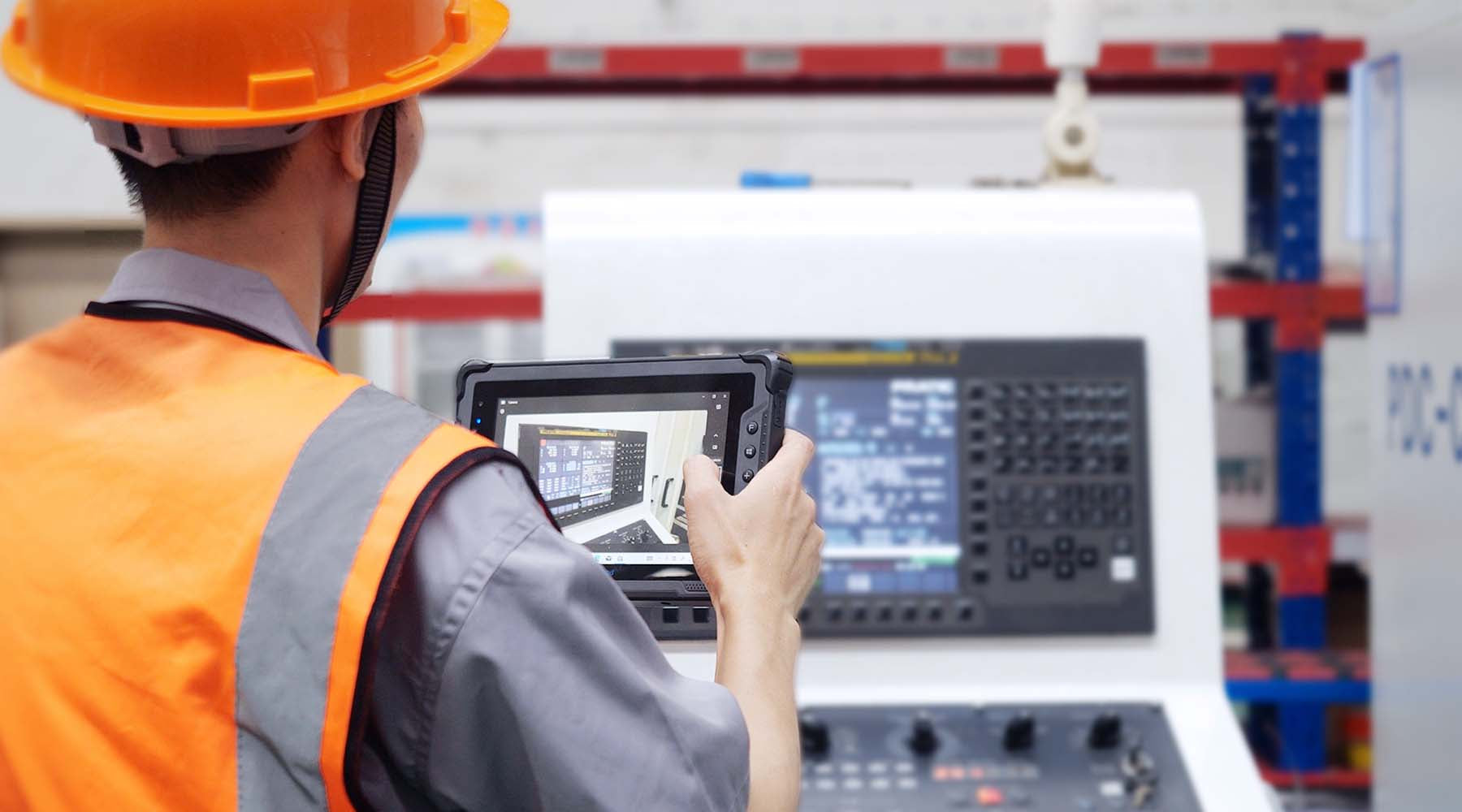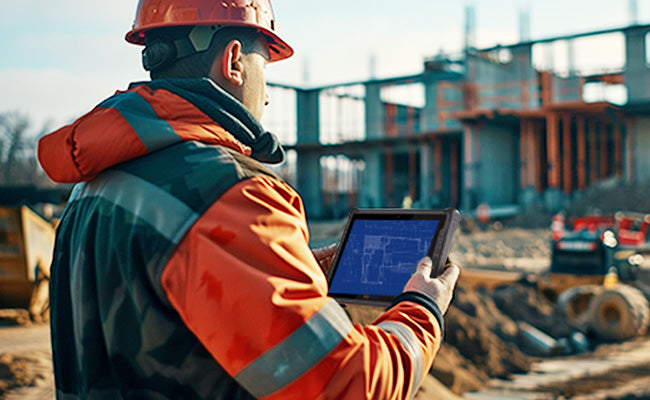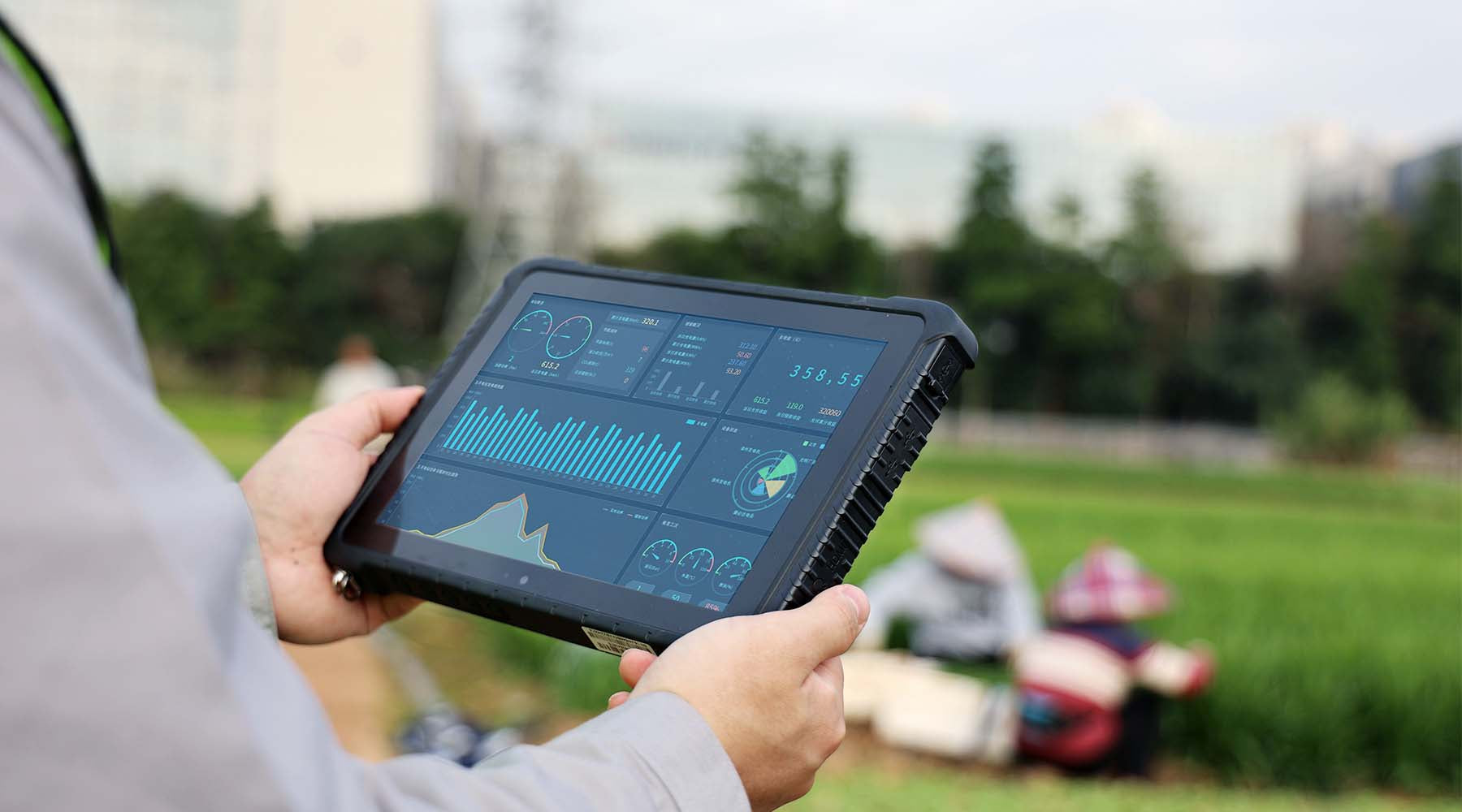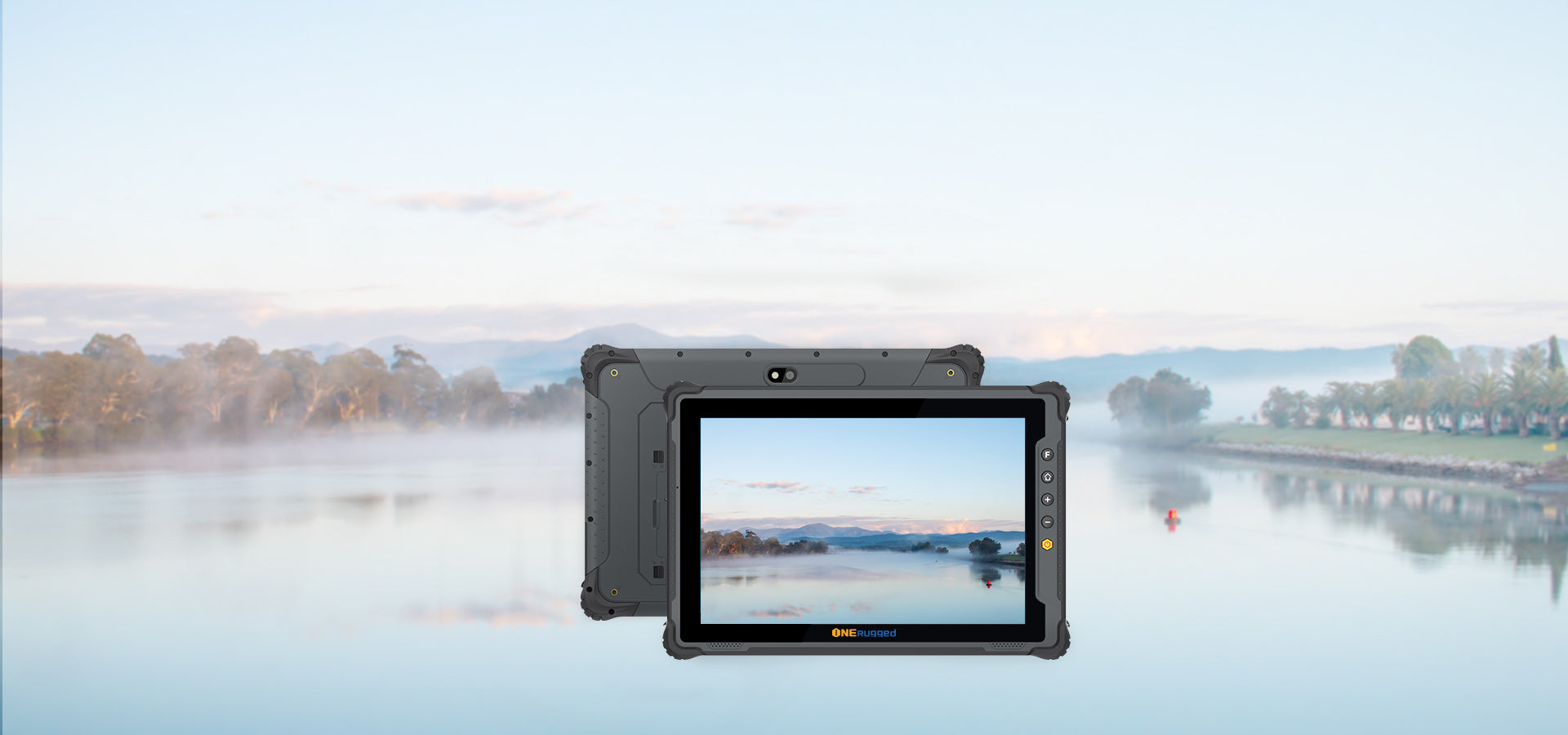
Rugged Tablet PC VS Industrial Computer VS Vehicle-mounted Terminal?
What Sets Apart Rugged Tablet PCs, Industrial Computers, and Vehicle-Mounted Terminals? To begin, let's delve into the definitions of these three categories of devices.
What is a rugged tablet PC?
Rugged tablet PCs are built to withstand harsh environments and rough handling. They are designed to be durable, with features such as shock resistance, waterproofing, and dustproofing.
The minimum industry standard for ruggedness is IP53, with common grades including IP54, IP65, IP67, IP68, and IP69K. These devices are commonly used in industries like construction, manufacturing, and field services where traditional consumer-grade tablets would not survive.

What is an industrial computer?
Industrial computers are similar to rugged tablet PCs in terms of durability, but they are typically larger and more powerful. These computers are used in industrial settings where they may be exposed to extreme temperatures, vibrations, and contaminants. Industrial computers are often used for automation, control systems, and data acquisition in manufacturing plants and warehouses.
It serves two main functions: human control for monitoring, managing, and dispatching personnel, and machine control for overseeing machine operations and efficiency. Initially utilized in early industrial settings, industrial computers now find applications in diverse fields such as smart factories, laser cutting, milling machines, smart cabinets, and rail transit control.

What is a vehicle-mounted Terminal?
Vehicle-mounted terminals are specialized computers that are installed in vehicles such as forklifts, trucks, and other industrial vehicles. These terminals are designed to withstand the vibrations and shocks that come with being mounted in a moving vehicle. They are commonly used for tasks like inventory management, order picking, and navigation in logistics and transportation industries.
A vehicle-mounted terminal, also known as a vehicle-mounted tablet PC, is a specialized computing device designed for the unique environment of vehicular operation. Primarily aimed at ensuring safe and efficient driving, it facilitates control, management, and monitoring of driving conditions. These terminals are extensively employed in both domestic and international vehicular operations.
While these devices share underlying design and operational principles as computers, their usage scenarios, functional requirements, and environmental demands vary significantly.

The evolutionary trajectory of them
Before delving into the analysis, let's share a brief anecdote about the evolution of industrial computers.
In the 1980s, the advent of industrial computers marked a revolutionary milestone in human technological progress. Initially confined to fixed applications such as electronic standard operating procedures (SOPs) and embedded control systems, the limitations of industrial computers became apparent once users moved away from them. Subsequent iterations, incorporating batteries, led to the birth of rugged tablet PCs. However, issues persisted, particularly in vehicle management applications, prompting further refinement. This iterative process eventually gave rise to vehicle-mounted terminals, addressing concerns such as screen durability, battery life, and connectivity issues, thus highlighting the distinct characteristics of each device type.
The above narrative encapsulates the unique attributes and evolutionary trajectory of these devices.
Analysis
1. In terms of structure, vehicle-mounted terminals closely resemble industrial computers, comprising three main components: the motherboard, casing, and display screen. Rugged tablets include an additional battery component.
2. Regarding environmental certification, rugged tablet PCs prioritize features like dustproofing, waterproofing, drop resistance, and extended battery life. Many models adhere to standards such as IP65, IP67, IP68, and offer drop protection of up to 1.8 meters, catering to prolonged outdoor usage with battery life averaging around 15 hours.
3. Industrial computers typically maintain a lower level of protection, with emphasis placed on achieving at least an IP65-rated front panel screen. These devices usually operate within a minimum temperature range of -10°
4. In contrast, vehicle-mounted terminals boast higher protection levels, often designed to withstand temperatures as low as -20°C or even -30°C in harsh environments such as agricultural or mining settings. They feature dustproof and waterproof ratings of IP67 or higher, along with specialized connectors like aviation plugs or DEUTSCH waterproof connectors. Moreover, they adhere to stringent standards for vibration and shock resistance, such as 810G Method 514.6 and 810G Method 516.6, respectively.
Key Differences
While all three types of devices are built for durability and reliability in challenging environments, they have distinct differences that set them apart. Rugged tablet PCs are portable and versatile, industrial computers are powerful and customizable, and vehicle-mounted terminals are specialized for use in vehicles.
When choosing between these devices, it's important to consider the specific requirements of your industry and the environment in which the device will be used. Each type of device has its own strengths and weaknesses, so selecting the right one will depend on your unique needs.

Summary
Through this analysis, we gain a comprehensive understanding of these three product categories.
"Pain leads to change, change leads to improvement, and improvement leads to success." The evolution of pixel counts in smartphones exemplifies the continuous quest for enhancement. While consumer devices prioritize user experience, industrial computers emphasize stability. Recognizing the diverse needs of different user groups and industries, product features are tailored to address specific pain points, driving innovation and progress in each sector.






Leave a comment
This site is protected by hCaptcha and the hCaptcha Privacy Policy and Terms of Service apply.